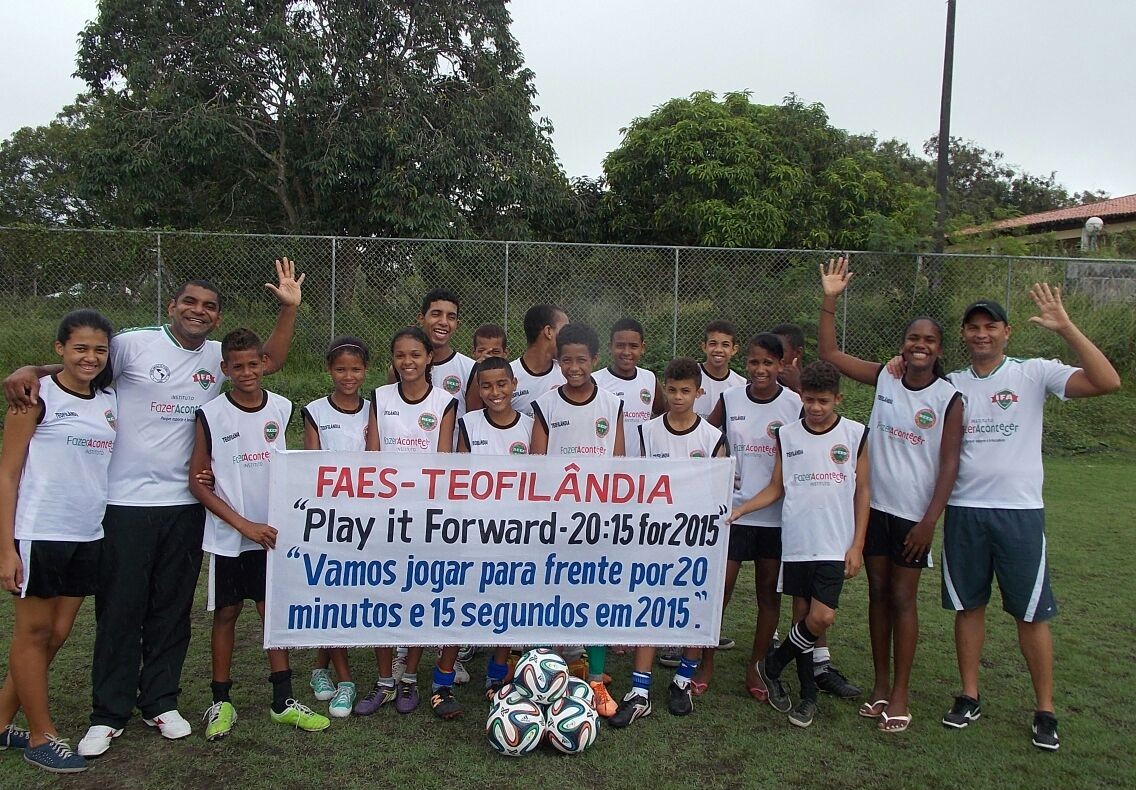The many benefits of sport
* the following is extracted from the True Sport report. Click here for the report.
Sport’s benefits include:
Helping children learn and develop through play – Play is one of the primary ways that young children explore the world and develop their physical, cognitive and social-emotional capacities. Age-appropriate games and physical activity can help young children acquire mobility, coordination, knowledge about the world and themselves, self-confidence and initial social skills.
Building physical capacity and motor skills – Early to mid-childhood is when children acquire the strength, coordination and motor-skills necessary to move with efficiency and confidence in physically challenging circumstances. Sport and physical activity can help children to build this general base of motor abilities and a basic understanding of how their body moves.
Keeping children and youth active and healthy – Regular participation in physical activity during childhood and adolescence can help: 1) build and maintain healthy bones, muscles and joints; 2) control weight, build lean muscle and reduce fat; 3) prevent or delay development of high blood pressure and reduce blood pressure in adolescents with hypertension; 4) lower risk of cardiovascular disease; and 5) reduce feelings of anxiety and depression.
Using sport to reduce youth health risk behaviours – Young athletes are more likely than non-athletes to eat healthily and weigh less, and less likely to smoke cigarettes, use drugs, engage in sexual activity, or be bored or hopeless. Organized sports are generally associated with less antisocial behaviour, such as carrying a weapon or contemplating or attempting suicide, while adolescent girls who participate in sport are less likely than non-athletic peers to participate in sexual activity and/or report a pregnancy.
The particular benefits of sport for girls – Girls benefit particularly from sport’s potential protective effects against osteoporosis, anxiety, depression, suicide, and adolescent pregnancy. As well, girls’ participation is strongly linked to pro-education values, a greater sense of control over their own bodies, and more generalized feelings of empowerment, identity and self-direction that can help them to overcome restrictive gender norms and participate more fully in society.
Fostering positive youth development – Sport can also contribute positively to adolescent identity formation, a critical step in the transition from adolescence to adulthood. Young people who participate in sport score significantly higher on self-concept than those who do not, with girls benefiting even more than boys. Sport also facilitates friendships and positive social relations, which also play an important role in youth identity formation.
Enhancing academic achievement – Sport and physical education can help improve young people’s school attendance, behaviour, and academic achievement. Participation in school-based sport and physical activity has been shown to result in considerably healthier social and academic self-concepts, while longitudinal research from the United Kingdom confirms that sport can contribute to identification with, and commitment to, school and school values.
Teaching positive values and life skills – Sport offers young people a means to gain and enhance a range of life skills that can improve their chances of finding employment, raise their level of income, and make them more optimistic and willing to volunteer in the community. Sport can potentially have a positive moral influence when it fosters positive experiences, minimizes negative experiences, empowers youth, treats them as individuals, and systematically and consistently teaches fair play and sportsmanship.
Preventing youth crime and gang involvement – Youth who participate in sport are less likely to engage in delinquent behaviour and have lower rates of criminal arrest. Sport programs can also offer youth a positive alternative to membership in criminal gangs. Sport programs to prevent youth crime and gang involvement work best when they are holistic, values-based, empowering, and delivered as part of a wider series of activities, in partnership with local renewal agencies and other groups. Purely recreational programs are unlikely to be very effective.
Providing positive adult role models – Adult role models play a key part in determining whether sport programs exert a positive or negative influence. Character, fair play, and morals are learned by youth when the goals, attitudes and behaviour of their coach or teacher are moral. A consistent positive relationship with a caring adult is also a significant protective factor, helping to build resilience in children and youth and enabling them to better manage the challenges in their lives.
Building social capital – A nation’s level of sport participation is closely linked to its level of social trust and well-being. People who participate in sport are more likely to vote, contact a politician and sign a petition than the average citizen. They also show higher levels of social trust, trust in institutions, and life satisfaction. Sport also helps to keep small rural communities together and, in declining rural towns, may even provide the last remaining social infrastructure.
Helping newcomers to integrate more quickly into Canadian society – United Kingdom research on sport and the inclusion of refugees and asylum seekers shows that it can help to break down barriers between newcomers and local host populations, improve relationships among asylum seekers of diverse ethnic backgrounds, and build their self-esteem and self-confidence. Sport is also being used successfully to link newcomers to key community services and supports.
